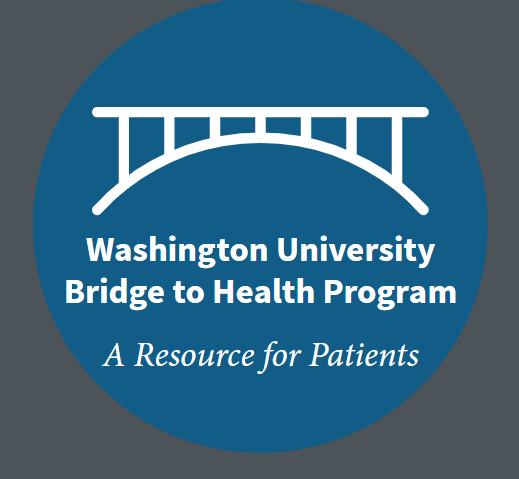In August 2022, the American Heart Association released a statement outlining new recommended guidelines for managing infective endocarditis in people who inject drugs, providing a timely and comprehensive approach to the management of the disease than what was previously provided by the AHA. With the incidences of infective endocarditis cases among people who inject drugs on the rise nationally, the AHA realized the need for a review of their existing statement to accommodate the unique features of the disease in this population. So, in 2021, the AHA convened a writing group of nationally recognized experts, including Laura Marks, MD, PhD, assistant professor of medicine, Washington University School of Medicine, Division of Infectious Diseases. Marks specializes in clinical infectious diseases with a special focus on infectious complications in people who inject drugs.
“Injection drug-use associated endocarditis has unique features that potentially require additional aspects of care,” explains Marks. “These patients need multidisciplinary care for substance-use disorders, something that we have pioneered here at WashU. We are not only treating the infection but identifying the reason they got it in the first place.”
Marks points out that the new statement addresses three key aspects about treating this population, multidisciplinary addiction medicine consultation plus unique antimicrobial and surgical care management.
“Injection drug-use associated endocarditis has unique features that potentially require additional aspects of care. These patients need multidisciplinary care for substance-use disorders, something that we have pioneered here at WashU. We are not only treating the infection but identifying the reason they got it in the first place.”
Laura Marks, MD, PhD
Antimicrobial management can be particularly challenging from a treatment perspective. According to Marks, previous guidelines recommended intravenous antibiotics to cure infective endocarditis, traditionally administered during a six-week hospital stay. “Many patients with a history of injection drug-use can’t stay in the hospital for this long. Or they aren’t eligible to do IV antibiotics at home. This has frequently led to incomplete courses of therapy. But now, the AHA statement recognizes that we have evidence on effective alternative anti-microbial therapies, administered orally, that are more flexible and encourage compliance.”
Oral therapy research offers alternative treatment options
Concurrently, the release of the AHA statement was followed by the publication of the study “Outcomes of Partial Oral Antibiotic Treatment for Complicated Staphylococcus Aureus Bacteremia in People Who Inject Drugs” published in Clinical Infectious Diseases, September 2022. Developed by a team of WashU infectious diseases researchers, the study provides more evidence to support the oral therapy strategies outlined in the new AHA statement.
Marks, senior author of the study, explains that staphylococcus aureus represents the leading cause of complicated bloodstream infections among persons who inject drugs. “Our research detailed how the standard of care intravenous antibiotics result in high rates of treatment success but aren’t always feasible for some people who inject drugs. We found that a transition to oral antibiotics was frequently a more compliant treatment option.”
Bridge to Health Program
Much of the research for compliance and follow up for this study came out of the Bridge to Health Program, a joint effort between the Division of Infectious Diseases and Barnes-Jewish Hospital, that provides service to patients who inject drugs and are admitted to the hospital with invasive infections. Launched in February 2020, Bridge to Health has served patients with a multidisciplinary focus, providing care from addiction physicians, infectious diseases physicians, and a dedicated team of health coaches and social workers. In addition to providing flexible antibiotic options for patients with serious injection related infections such as endocarditis, the program offers hepatitis C treatment as well.
According to Marks, the Bridge to Health team provides valuable outreach that reinforces compliance. “Our team really extends the range of the program. The health coaches and case managers make connections with the patient, and frequently their family, so that if they leave the hospital early for any reason, we can follow up and provide ongoing care.”

Much of the success from the Bridge to Health Program was outlined in the study “Patients With Serious Injection Drug Use–Related Infections who Experience Patient-Directed Discharges on Oral Antibiotics Have High Rates of Antibiotic Adherence but Require Multidisciplinary Outpatient Support for Retention in Care” published in Open Forum Infectious Diseases, February 2022. The goal of the study was to evaluate the outcomes of patients who inject drugs with serious injection-related infections who had a patient-directed discharge on oral antibiotics and then compare this cohort with those that remained hospitalized to complete a six-week course of antibiotics. “Utilizing data from Bridge to Health, this study looked at adherence to oral antibiotics for this population with patient-directed discharge,” explains Marks. “And we found that if you provide the right support, they are compliant.”
The Bridge to Health program was initially developed from a CDC SHEPhERD grant awarded to Michael Durkin, MD, MPH, associate professor of medicine, and Stephen Liang, MD, MPHS, associate professor of medicine, in 2020. The initial contract was aimed at improving integration of substance use disorder care into the inpatient care of patients hospitalized with injection related infections, as well as increasing screening post-discharge follow-up, and screening for other infections such as HIV, hepatitis B and C. Once the grant was complete, Washington University Infectious Diseases and Barnes-Jewish Hospital extended the services by formally launching the Bridge to Health program.
For Marks, she feels the new AHA statement validates the ways that WashU and Barnes-Jewish Hospital have been treating this disease among people who inject drugs for years. “For this population, navigating the health care system can be really hard so we’ve tried to make the Bridge to Health program as accessible as possible, providing novel ways to reach and care for these patients.”